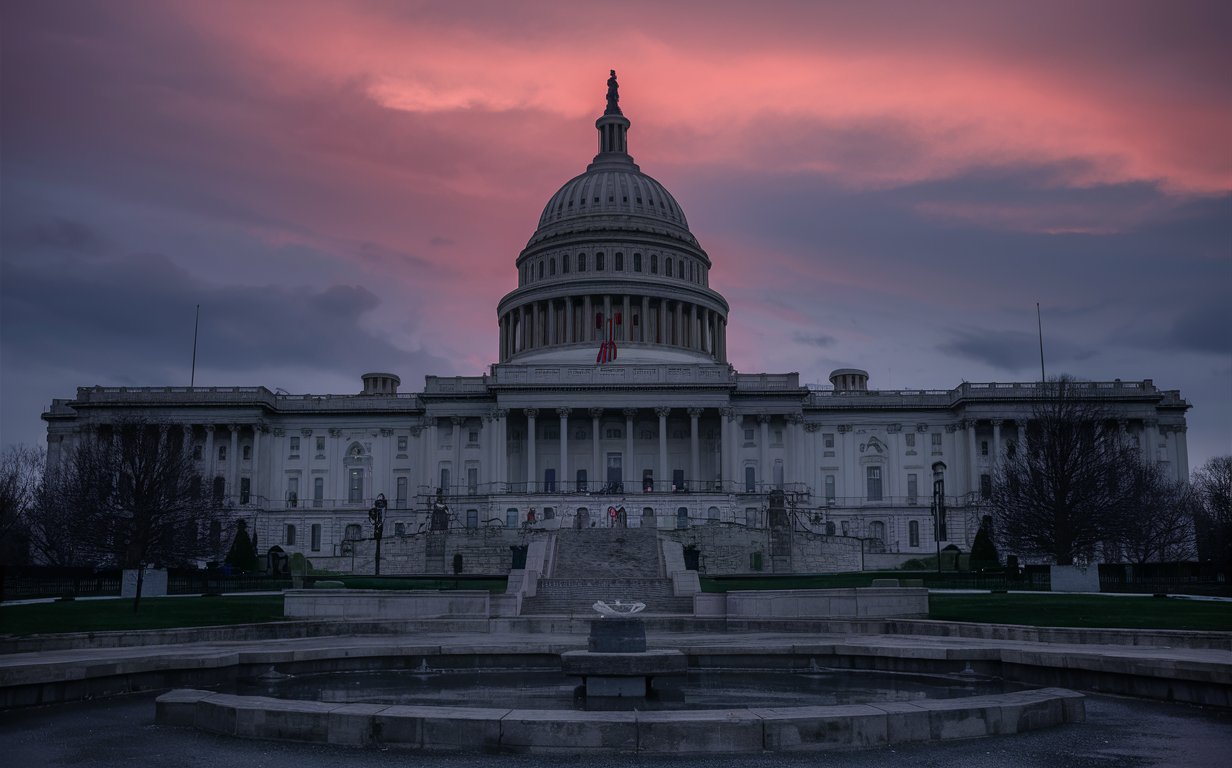Analysis
The Middle Eastern Powder Keg: Why Ignoring Public Anger in the Arab World is a Dangerous Mistake for America and Middle Eastern Regimes

Introduction
The Middle East is currently experiencing a wave of protests and mass demonstrations in solidarity with Palestinians, following the recent attack on Israel by Hamas. Egyptians, Iraqis, Moroccans, Tunisians, and Yemenis have taken to the streets in vast numbers, and Jordanians have even marched on the Israeli embassy. While some may dismiss these protests as manageable and insignificant, this view reflects a fundamental misunderstanding of the importance of public opinion in the Middle East and a deep misreading of what has truly changed since the 2011 uprisings.

The Myth of the “Arab Street”
The term “Arab street” is often used by policymakers to reduce the complexities of regional public opinion to the rantings of an irrational, hostile, and emotional mob. This term has deep roots in British and French colonial rule and was adopted by the United States during the Cold War. However, this perception rests on a basic misunderstanding of Arab politics and continues to drive U.S. Middle East policy, as well as many policy analyses of the region.
In reality, Arab public opinion is shaped by a complex set of factors, including historical grievances, cultural values, and political ideologies. While it may be easier to dismiss Arab support for the Palestinian territories as rooted in atavistic anti-Semitism or to wave away public fury at U.S. policies as cynically drummed up by politicians, this approach fails to address the reasons for Arabs’ anger and to find ways to address their concerns.
The Arab Uprisings of 2011 and their Aftermath
The Arab uprisings of 2011 marked a turning point in the region’s political landscape. While the uprisings were initially driven by economic and political grievances, they quickly became intertwined with the issue of Palestine and the Arab-Israeli conflict. The protests that followed the October 7 attack on Israel are a testament to the enduring importance of this issue in the region.
However, the aftermath of the uprisings has also shown that the region’s autocratic leaders are not immune to public pressure. Despite their record of ignoring their people’s preferences, the protests that followed the October 7 attack on Israel have forced some leaders to take a more assertive stance against Israel. This shift reflects a growing awareness among Middle Eastern leaders that they can no longer afford to ignore public opinion on this issue.
The Role of the United States
The United States has long been a major player in the Middle East, and its policies have a significant impact on the region’s political landscape. However, the U.S. has a long history of disregarding public opinion in the Middle East, preferring to deal with pragmatic autocrats rather than engage with publics it regards as irrational, extremist mobs.
This approach has contributed to the U.S.’s dismal record of policy failures in the region. By dismissing popular concerns, the U.S. has failed to address the root causes of the region’s instability and has instead contributed to the rise of extremist groups and the erosion of trust in the U.S. among the Arab public.
Conclusion
The protests that followed the October 7 attack on Israel are a reminder that public opinion matters in the Middle East. Ignoring this fact is a dangerous mistake that could have serious consequences for both Middle Eastern regimes and the United States.
To avoid this mistake, the U.S. and Middle Eastern regimes must take Arab public opinion seriously and engage with it in a meaningful way. This means acknowledging the region’s historical grievances, cultural values, and political ideologies and finding ways to address the concerns of the Arab public.
By doing so, the U.S. and Middle Eastern regimes can help to build a more stable and secure region, where the concerns of the Arab public are taken seriously and addressed in a meaningful way. This is not only in the best interests of the Arab public, but also in the best interests of the U.S. and Middle Eastern regimes themselves.
Analysis
The Impending Storm: Iran’s Concerns Over a Second Trump Presidency

Table of Contents
Introduction
As the political landscape in the United States evolves, the spectre of a second term for Donald Trump looms large, casting a shadow of uncertainty over international relations. For Iran, this potential scenario brings forth a myriad of concerns, ranging from economic shocks to heightened military tensions and the risk of widespread unrest. In this article, we delve into the reasons why Iran is apprehensive about the prospect of Donald Trump reclaiming the presidency, examining the implications for the country’s leadership amidst a backdrop of escalating regional conflicts.

Economic Implications
Iran’s economy has been significantly impacted by the Trump administration’s policies, particularly through the re-imposition of sanctions following the U.S. withdrawal from the Iran nuclear deal. A second Trump presidency could exacerbate these economic challenges, leading to further isolation and financial strain for Iran. The uncertainty surrounding future trade agreements and the potential for increased sanctions under a renewed Trump administration create a climate of instability that could have far-reaching consequences for Iran’s economy.
Military Escalation
One of the most pressing concerns for Iran is the possibility of bolder military action by the United States under a second Trump presidency. The recent tit-for-tat strikes with Israel and the looming threat of a wider conflict in the Middle East underscore the precarious nature of regional security. With Trump’s track record of aggressive foreign policy decisions, Iran faces the prospect of heightened military tensions and the risk of direct confrontation with the U.S. and its allies.
Impact on Leadership
The risks posed by a second Trump presidency extend beyond economic and military considerations to the very core of Iran’s leadership. The current regime faces the challenge of navigating a complex geopolitical landscape, where the actions of the U.S. can have profound implications for domestic stability. Increased protest movements, fueled by discontent over economic hardships and political repression, could further destabilize Iran’s leadership and exacerbate internal divisions.
Conclusion
In conclusion, the potential re-election of Donald Trump as U.S. president presents a formidable set of challenges for Iran, encompassing economic uncertainty, military escalation, and internal unrest. The implications of a second Trump presidency for Iran’s leadership are profound, requiring a strategic approach to navigate the complexities of international relations and safeguard the country’s interests. As Iran prepares for an uncertain future, the spectre of a second Trump presidency looms large, casting a shadow of apprehension over the nation’s political landscape.
Analysis
Unveiling Carvana’s Recent Insider Stock Sales: Analyzing the Impact of Ernest C. Garcia II’s $8.2 Million Transactions

Table of Contents
Introduction:
In the ever-changing world of stock markets, investors often scrutinize insider trading activities to gain insights into a company’s performance. Recently, Carvana Co. (NYSE:CVNA) has been making headlines due to significant shareholder Ernest C. Garcia II’s series of stock sales, which amounted to over $8.2 million. These transactions were executed between April 26 and April 29, 2024. As a result, many in the investment community are curious and analyzing the implications of these sales for both Carvana and investors at large. This article provides an in-depth analysis of Garcia’s stock sales and their implications.
Understanding the Transactions:
Ernest C. Garcia II’s stock sales unfolded over a span of four days, involving the disposal of Class A Common Stock at prices ranging from $80.0928 to $87.8791. On April 26, Garcia initiated the sales by offloading 50,000 shares at an average price of $80.0928. The subsequent transactions on April 29 comprised 6,204 shares at $83.8822, 22,246 shares at $84.9145, 14,537 shares at $85.9585, 5,764 shares at $86.7816, and 1,249 shares at $87.8791. Despite these sales, Garcia retains a significant stake in Carvana, with direct ownership of 3,212,500 shares and additional indirect holdings through trusts and LLCs.
The Regulatory Framework:
It is crucial to note that these sales were executed under a Rule 10b5-1 trading plan, established by Garcia and his spouse on March 11, 2024. This plan enables company insiders to predetermine stock trading activities at times when they are not privy to material non-public information, safeguarding against allegations of insider trading. By adhering to this regulatory framework, Garcia ensures transparency and compliance in his stock transactions.
Analyzing Garcia’s Position at Carvana:
Ernest C. Garcia II holds a prominent position at Carvana as a ten percent owner, underscoring his significant influence within the company. Despite the recent stock sales, Garcia’s substantial ownership reaffirms his vested interest in Carvana’s success and long-term growth. His continued involvement and stake in the company signal confidence in Carvana’s strategic direction and potential for future prosperity.
Investor Insights and Market Impact:
For investors and market observers, insider transactions serve as a valuable source of information regarding a company’s health and future performance. Carvana, operating in the auto retail and gasoline stations sector, has witnessed fluctuations in its stock performance, making Garcia’s transactions a focal point for shareholders and potential investors. By scrutinizing these sales, stakeholders can glean insights into Carvana’s internal dynamics, strategic decisions, and overall market positioning.
Conclusion:
In conclusion, Ernest C. Garcia II’s recent insider stock sales at Carvana have stirred interest and speculation within the investment community. By conducting these transactions under a Rule 10b5-1 trading plan, Garcia upholds regulatory compliance and transparency in his dealings. His continued ownership stake underscores his commitment to Carvana’s success and future prospects. As investors analyze these transactions for cues on the company’s trajectory, the impact of Garcia’s sales on Carvana’s stock performance and market perception remains a subject of ongoing scrutiny and evaluation.
Analysis
The Growing Threat: Houthis Extend Attacks on Shipping in the Indian Ocean

Recently, the Houthi rebels from Yemen have been increasing their attacks on ships in the Indian Ocean. This has raised concerns among maritime experts about a new wave of threats in the region. The escalation in activity follows a drone strike on a container vessel, which indicates a potentially dangerous trend that could have far-reaching implications for maritime security and global trade.
Table of Contents
Understanding the Houthis and Their Motivations
The Houthis, officially known as Ansar Allah, are a Shia insurgent group that has been involved in a protracted conflict in Yemen since 2014. They have been fighting against the internationally recognized government of President Abdrabbuh Mansur Hadi, leading to a complex and devastating civil war in the country. The group is known for its anti-Western and anti-Saudi Arabia stance, which has shaped its actions and alliances in the region.

The Impact of Houthi Attacks on Shipping
The recent extension of Houthi attacks to the Indian Ocean is a significant development that has raised alarms within the maritime community. The targeting of a container vessel with a drone strike highlights the group’s growing capabilities and willingness to disrupt maritime activities in key waterways. Such attacks not only pose a direct threat to the safety of ships and crew but also have broader implications for global trade and energy security.
Analyzing the Strategic Implications
Maritime experts are closely monitoring the situation and assessing the strategic implications of the Houthis’ actions. The Indian Ocean is a vital maritime corridor that connects major shipping routes between Asia, Africa, and the Middle East. Any disruption in this region could have serious consequences for international trade, affecting supply chains and economic stability worldwide.
Response from the International Community
The escalation of Houthi attacks in the Indian Ocean has prompted responses from the international community, with calls for increased vigilance and security measures in the region. Countries bordering the Indian Ocean, as well as major maritime powers, are working to enhance coordination and intelligence-sharing to address the growing threat posed by the Houthis.
Mitigating the Risks and Ensuring Maritime Security
In light of these developments, stakeholders must prioritize maritime security and take proactive measures to mitigate the risks associated with Houthi attacks. Enhanced surveillance, intelligence gathering, and cooperation among navies and maritime agencies are essential to safeguarding shipping lanes and ensuring the free flow of goods across the Indian Ocean.
Conclusion
The recent extension of attacks on shipping by the Houthis across the Indian Ocean is a cause for concern and highlights the complex security challenges that the maritime domain faces. To address this threat and maintain the safety and stability of maritime operations in the area, it is crucial for the international community to understand the motivations behind these attacks, analyze their impact, and implement effective security measures. A proactive approach, cooperation, and vigilance are crucial to navigating these turbulent waters and safeguarding the future of global trade and maritime security.
-

 Featured3 years ago
Featured3 years agoThe Right-Wing Politics in United States & The Capitol Hill Mayhem
-

 Elections 20242 months ago
Elections 20242 months agoAnalyzing Trump’s Super Tuesday Triumph and Nikki Haley’s Strategic Moves
-

 News2 years ago
News2 years agoPrioritizing health & education most effective way to improve socio-economic status: President
-

 China3 years ago
China3 years agoCoronavirus Pandemic and Global Response
-

 Canada3 years ago
Canada3 years agoSocio-Economic Implications of Canadian Border Closure With U.S
-

 Conflict3 years ago
Conflict3 years agoKashmir Lockdown, UNGA & Thereafter
-

 Democracy3 years ago
Democracy3 years agoMissing You! SPSC
-

 Democracy3 years ago
Democracy3 years agoPresident Dr Arif Alvi Confers Civil Awards on Independence Day























